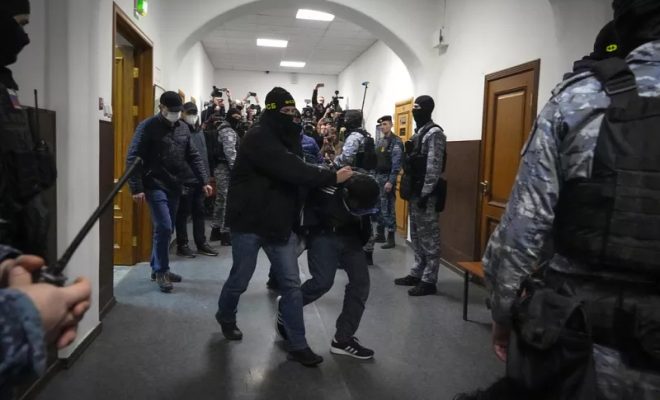Moscow Shooting Exposes Russia’s Security Apparatus

The shooting rampage near Moscow that left dozens dead has raised awkward questions about the priorities and capabilities of Russia’s vaunted security services. The FSB, the main successor to the KGB, has been tasked with hunting down Ukrainian saboteurs, suppressing domestic dissent, and countering foreign intelligence threats. However, as former U.S. officials and analysts point out, this overextended mandate may have caused it to drop the ball on other dangers like Islamist militancy.
Tunnel Vision in Ukraine
With resources heavily focused on the war effort and Putin’s crackdown on anti-Kremlin activists, the FSB appears to have overlooked the rising threat from groups like ISIS-K, which claimed responsibility for the concert hall attack. Russia’s increasingly isolated position on the world stage hasn’t helped matters. Moscow has burned bridges with Western intelligence partners, cutting off potentially vital information streams about terrorist threats.
Additionally, the Ukraine conflict has drained manpower and finances from counterterrorism operations as the FSB redirects assets to root out perceived internal dissidents and Ukrainian saboteurs. This myopic focus on Putin’s policy priorities may have blinded Russia to the looming danger from ISIS-K and other extremist groups looking to exploit any potential security lapses.
Moscow Shooting Exposes Russia’s Security
The shocking assault has exposed potential blind spots in Russia’s security apparatus at a particularly vulnerable time. With military and intelligence resources strained by the Ukraine conflict, groups like ISIS-K may have sensed an opportunity to strike.
Polyakova noted that ISIS-affiliated groups have carried out attacks in Russia before, including the 2017 St. Petersburg metro bombing. “But the war in Ukraine has diverted attention and resources away from that threat.”
Also Read | Moscow Concert Attack Leaves Over 60 Dead in Islamic State Massacre
Credibility on the Line
The Kremlin will now face pressure to regain control of the security situation, both to protect Russian citizens and project an image of strength amid the Ukraine conflict. A perceived intelligence failure could undermine Putin’s credibility at a time when he’s tried to portray Russia as a besieged fortress.
As Russia grapples with the fallout, hard questions remain about whether an overstretched and distracted security apparatus missed critical warning signs. The consequences of that potential lapse have been deeply tragic.



